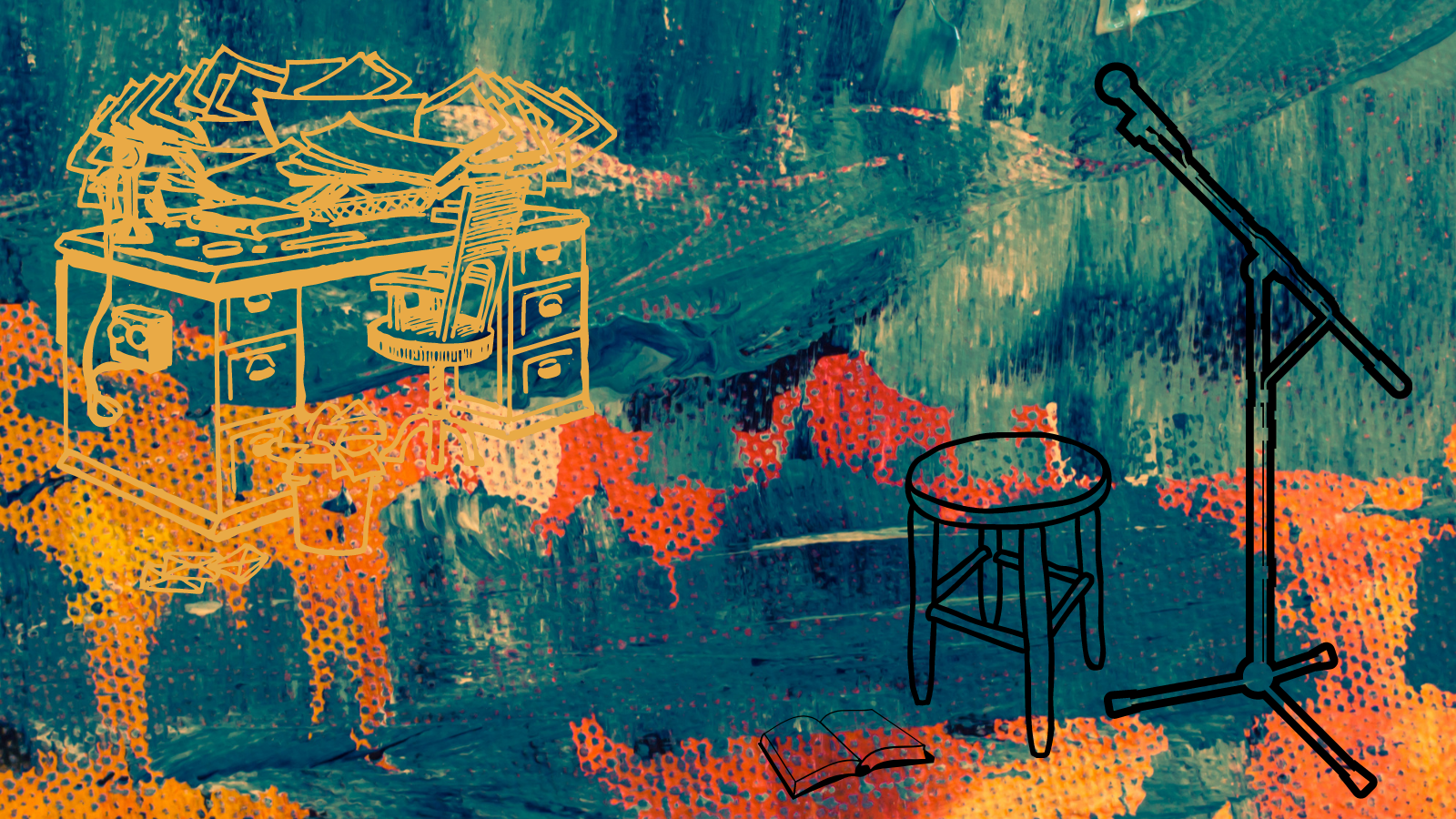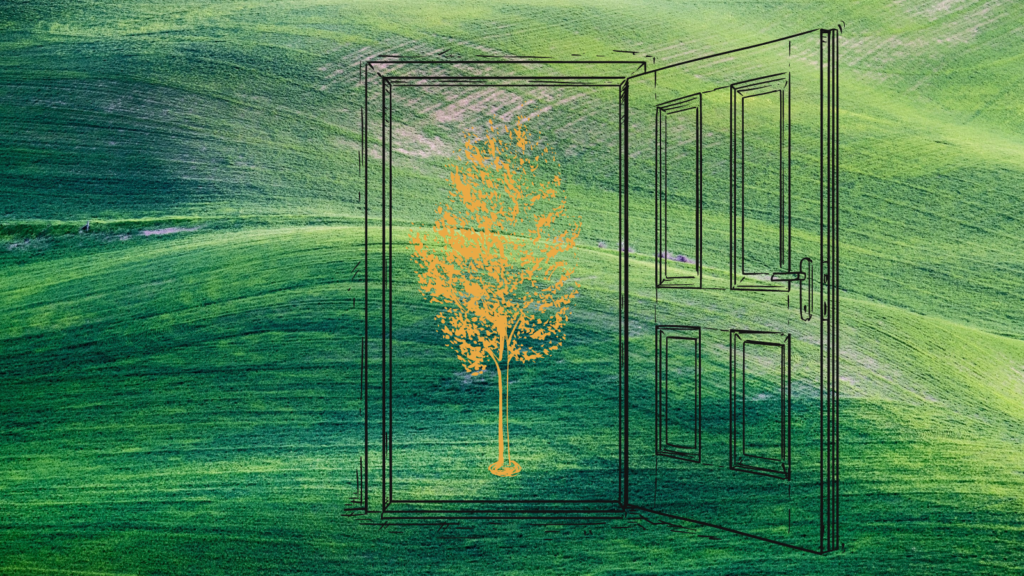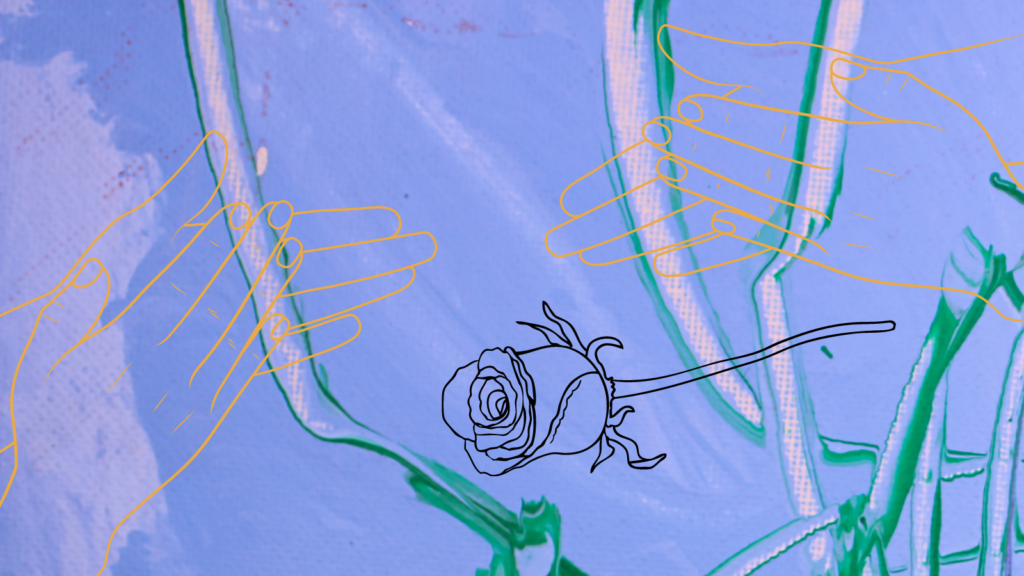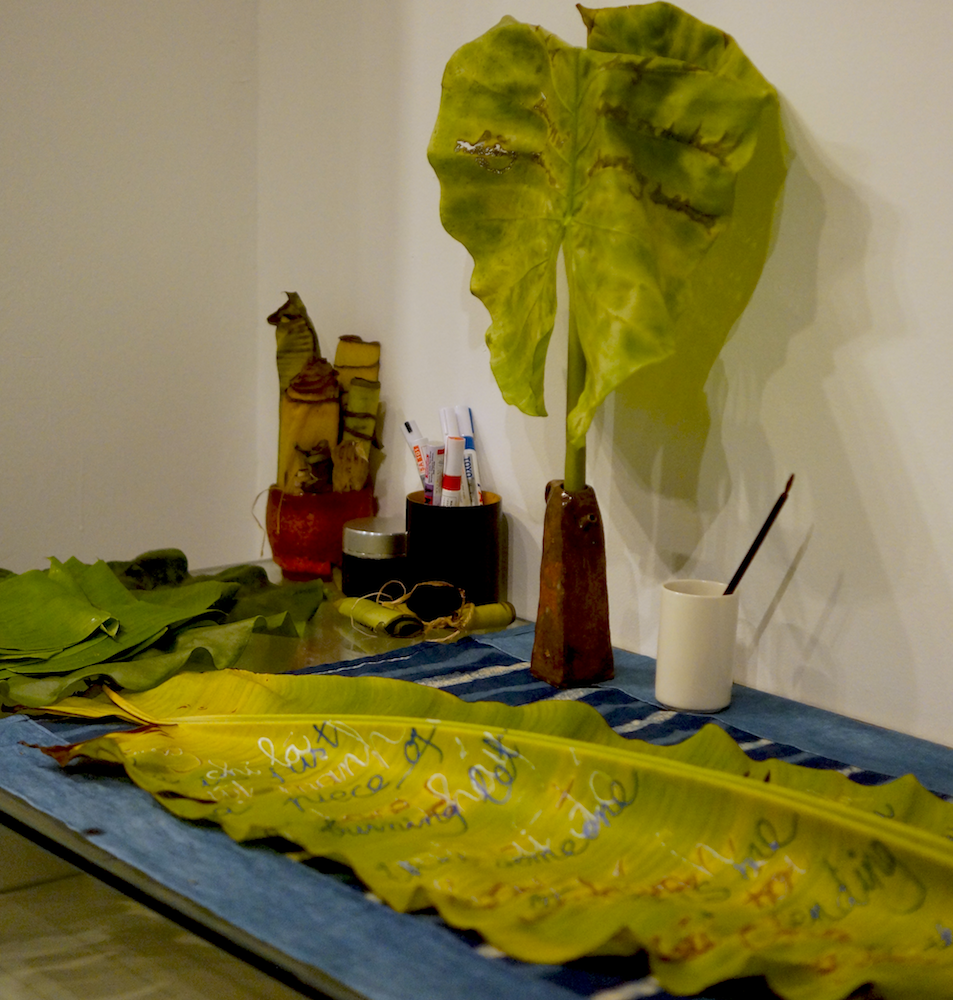Remembering the Workshop’s basement office in the late nineties

December 16, 2021
Editor’s Note: As the Asian American Writers’ Workshop celebrates its 30th anniversary, we invited current and former editors, writers, community members, and workers to make new meaning from the Workshop’s archive. Together, they have awakened AAWW’s print anthologies and journals, returned to the physical spaces of the Workshop starting from our basement location on St. Mark’s, and given shape to the stories from within AAWW that circulate like rumors, drawing writers back again and again. In revisiting the Workshop’s history, we hope for insight into the ever-changing landscape of Asian diasporic literature and politics and inspiration to guide us forward in our next 30 years. Read more in our AAWW at 30 notebook here.
On the corner of St. Mark’s Place and 2nd Avenue, visitors to 37 St. Mark’s Place would often miss the building’s white plywood door on the right, covered with inadvertent graffiti from some bored wanderer. The door opened to the two flights of stairs descending into the Workshop’s space, a sanctuary that affirmed and welcomed those seeking to excavate the stories of Asian Pacific Americans both from the past and the present. It was also a space to imagine the creative possibilities of the voices yet to be heard, to continue capturing the stories of what I call the “visibly invisible.”
The carpet absorbed the footsteps of those who arrived from as close as a tenement apartment across the street and those who came from as far as Tokyo seeking a copy of Woman in the Dunes. Such an eclectic group of people would ring our AA battery–remote door ringer, ushering a staff member to come unlock the door to welcome our visitors. Sometimes newcomers reacted with a sense of wonder as they saw the volumes on the bookshelves, sometimes they would let out a sigh of affirmation that they had come to the right place. Some stayed for a few minutes to pick up the newest copy of the zine Bamboo Girl, others stayed for hours reading Dictee.
It was not uncommon for writers like Min Jin Lee to come by to say hello and for Jhumpha Lahiri to peruse the bookstore. During the day, writers would gather at the tables to share their hearts as they shared a meal. Jessica Hagedorn would bring lunch to encourage the staff, and Tan Lin would invite aspiring writers to explore the boundless possibilities of putting words together. Kimiko Hahn would stop by to look at the murals put up from our basement production of “Peeling the Banana.”
In the evenings, we would set up a spotlight and mic and music stand to transform the bookstore into a reading space. Under the sea of that spotlight, writers and readers alike would converge to see, hear, and share our stories—both our distinct laments as well as our familiar narratives. To see a person in front of them reading words in our mother tongues. Sharing words.
On weekends, we would hold events for community organizations. South Asian Womxn’s Creative Collective met in the space to create in the freedom of a community that they called their own. Yuri Kochiyama hosted special gatherings on behalf of the David Wong Support Committee to address and advocate for justice. The Workshop’s youth writing program, CreateNow, which aims to create a pathway for high school writers, launched in that same space. Under that same spotlight, Tina Chang led those youth to put their stories into words, and Ishle Yi Park helped them craft narratives and see the power behind their words.
At the end of the day, when the Workshop closed at around 10 p.m., we would reflect on this special space that was home to countless, creative conversations that gave comfort. It was a place of many tears of discovery and also wounds that scarred. Yet each of the office spaces we shared—where the walls were covered in murals, posters for the next production at the Pan Asian Repertory Theater, signs from the Cammy Lee Leukemia Foundation for their next bone marrow registry drive at a local college, and flyers for the next Kinding Sindaw rehearsal—was a place where mundane and profound conversations knitted our imaginations and hearts together.
This basement was a subterranean home that might have been underground, but for so many it was the pinnacle of all that their hearts longed for. A place of homecoming where we came together to seek a collective voice made up of so many individual voices that made the basement such a unique place.
Read more reflections on AAWW’s space from Jeannie Wong, Amita Manghnani, Sophia Hussain, and Jafreen Uddin.



